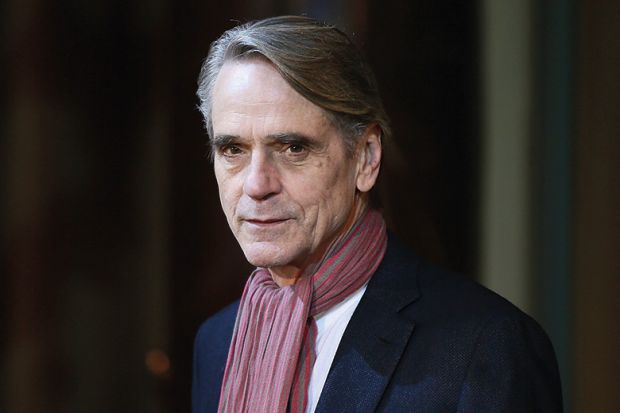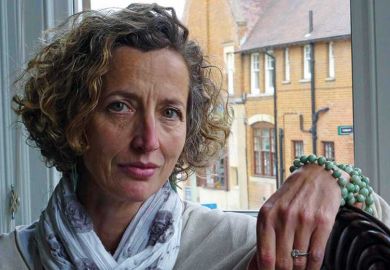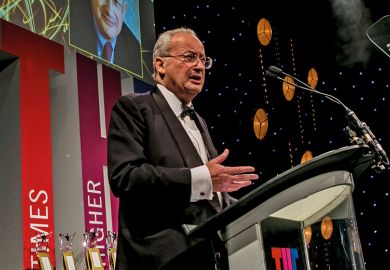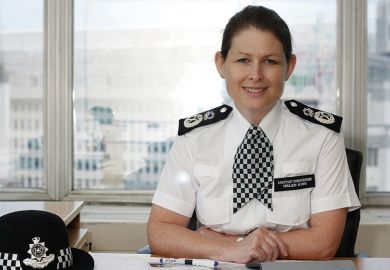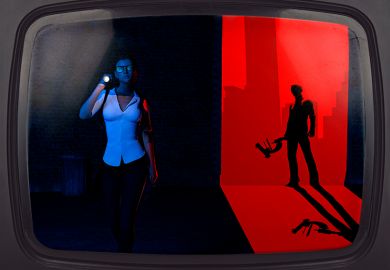Jeremy Irons trained at Bristol Old Vic Theatre School and has appeared in a wide variety of films from The French Lieutenant’s Woman to The Lion King. In 1991, he won an Oscar for his role in Reversal of Fortune. He is a goodwill ambassador for the United Nations Food and Agriculture Organisation, a patron of the Chiltern Shakespeare Company, and he holds an honorary degree from Southampton Solent University. He was recently inaugurated as the first chancellor of Bath Spa University.
Where and when were you born?
Cowes, Isle of Wight, in 1948.
How has this shaped you?
I went to boarding school when I was seven and it taught me the importance of family because we were together for only a third of the year.
What motivated you to take on the role at Bath Spa, considering that you have not been involved in higher education before?
It was an unexpected door opening. When I was invited [to take on the role], I felt unqualified but was convinced by Christina Slade, the vice-chancellor, and her board. I thought, well, I can give what I can give and it will be a very steep learning curve. I like that; I will always enjoy what life throws at me.
What do you hope to achieve as chancellor?
One of the things that Bath Spa focuses on is the link between culture and creativity and enterprise and the humanities. I think of myself as having rounded interests with some interest in politics, horses, sport, sailing, theatre, film-making, painting and architecture. I hope that my disparate interests can encourage the spirit that is already at Bath; that of cross-culturalisation between disciplines.
The Spiked rankings of free speech on campus have rated Bath Spa as a ‘hostile’ environment for free speech. Where do you stand on the issue of campus censorship?
I am entirely against that attitude. I hope that when I finish my chancellorship, Bath Spa will be seen as a place where individual expression of thought is admired. I think that university is a place for debate, outrage, and for putting forward and debating contentious ideas. It should be a place where you experiment with where you stand in life. If you don’t do that at university, where in God’s name are you going to do it? Of course, we should be kind to each other and understand each other’s perspectives but we must [also] be robust and challenge each other. I hate the idea that people could be attacked for saying what they think.
In Europe and the US, the populist Right has been using emotional appeals to win support. What could progressive politicians do to combat this?
I think that the vote for Donald Trump was very similar to the vote for Brexit. There seems to be a disconnect between what the people want and what they perceive government doing. There seems something deeply wrong with politics in that our leaders seem influenced far too much by the global economy, by large transnational corporations who have no interest in creating a fairer, more acceptable society. And our government should be doing that as well as worrying more about balancing the books. We need more idealism in government. I’m concerned that students are not entering into that debate. Well, they stirred a little bit after Brexit but, in my day, universities were a ferment of political idealism, thought and discussion. It’s all part of [the debate over] political correctness and not upsetting people. This is not a way to educate our children. We must all be rebellious. We must revolt against unfairness and the status quo, and if students are not going to join in that debate, who will?
You were involved in one of the most famous dramas set at a university. Has Brideshead Revisited had an impact on how higher education is perceived?
When it aired, I think it did change things a little bit; not necessarily for the better. One of the great things that can happen at university is that you have fun and you mix with a variety of people from different backgrounds, as Charles Ryder did.
If you were higher education minister for a day, what policy would you introduce?
I’d encourage firms to [offer] paid sabbaticals to their employees, [so they could] go and teach in universities, [to achieve] a real cross-fertilisation between business, industry and the professions, and teaching.
Do you have a personal rule that you never break?
I always try to treat people with respect and kindness, although I have a wicked sense of humour. Of course from time to time I fail, but that’s a rule that I try to follow. If you [stick to] it, it will keep you on the right path, even if you strongly disagree with people.
Will that wicked sense of humour put you in conflict with some students?
I suspect that it might, and I look forward to that.
Which of your characters would you most like to have as a roommate?
Father Gabriel from The Mission, he was a great guy.
What would you like to be remembered for?
As a stirrer-up of the shit: in other words, [bringing up] those things which need to be talked about that people aren’t talking about. I think that’s one of the functions of the arts, to make us see more clearly through the murky depths.
Appointments
Rob Warner will join the University of St Mark & St John as its new vice-chancellor in March 2017. He is executive dean of humanities at the University of Chester, where he is also professor of religion, culture and society. He is an academic on the sociology of Christianity and has researched the role of religion in higher education. “Having spent my academic career working in and across church foundation institutions, it is a great privilege to join Marjon,” Professor Warner said. “I look forward to shaping with my new colleagues an ambitious future for this exceptionally friendly university.”
Louise Archer has been appointed the new Karl Mannheim chair of sociology of education at the UCL Institute of Education. She is currently professor of sociology of education at King’s College London, where her research focuses on the identities and inequalities associated with gender, class and race in education. Professor Archer is also vice-president (education) at the British Science Association, director of the Enterprising Science project, and is leading the ASPIRES project, a study of children’s science career aspirations. “I am sure that she will continue to develop her cross-disciplinary interests in new ways at the IoE as well as enhancing the field of sociology of education internationally,” said Becky Francis, director of the institute.
Yarik Kryvoi will take on the roles of senior research fellow in international economic law and director of the Investment Treaty Forum at the British Institute of International and Comparative Law. He will begin working with the institute in January.
Julia Buckingham will take up the role of chair of the Concordat Strategy Group, having served as vice-chancellor and president of Brunel University London since 2012.
John Habron and Robert Gardiner have been announced as the new head of music education and assistant head of music education (PGCE), respectively, at the Royal Northern College of Music.
POSTSCRIPT:
Print headline: HE & me
Register to continue
Why register?
- Registration is free and only takes a moment
- Once registered, you can read 3 articles a month
- Sign up for our newsletter
Subscribe
Or subscribe for unlimited access to:
- Unlimited access to news, views, insights & reviews
- Digital editions
- Digital access to THE’s university and college rankings analysis
Already registered or a current subscriber?
